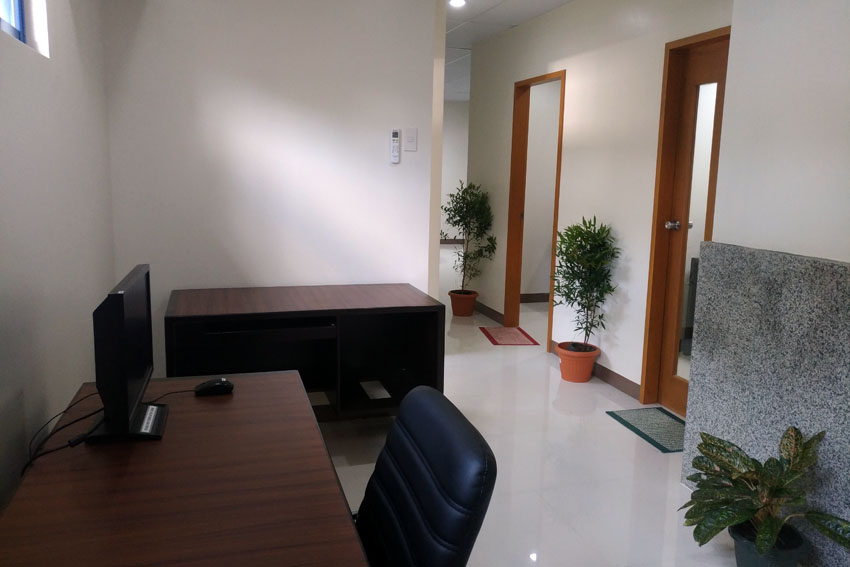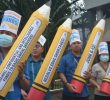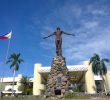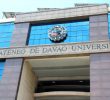
Inside the Center of Anti Illegal Drugs at the Ateneo de Davao University are two rooms for the 24-7 hotline and helpline for drug dependents and concerned citizens. (Zea Io Ming C. Capistrano)
DAVAO CITY, Philippines — The Ateneo de Davao University here has formally launched its Center Against Illegal Drugs tasked to conduct a research on the illegal drug trade in six key cities in Mindanao.
Roawie Quimba, director of the AdDU’s CAID, said the research would focus on the cities of Zamboanga, Iligan, Cagayan De Oro, Davao, Cotabato and General Santos.
“We are not interested with names, but we are very interested in the processes on how it flourishes and how the common people are affected,” Quimba told Davao Today in an interview during the formal opening of the CAID inside the AdDU campus along Roxas avenue.
The research aims to generate data that would identify the route of drug trade, process of supply and incentives that make drug trade a booming business. At present, the questionnaires are being finalized which will be used for data gathering, said Quimba.
He added that the end goal is to make use of the research in policy recommendation in the said cities.
From March 6 to March 15 this year, the Philippine National Police has recorded 27 individuals killed during police operations, while 1,102 were arrested, and 1,539 who surrendered.
4 programs
But research is just one of the four components that CAID would undertake. Aside from this, CAID will also have a community-based rehabilitation program which covers 28 of the 182 barangays in the city.
“That’s more or less 2,000 to 3,000 drug surrenderees,” Quimba added.
It will also have a 24-hour hotline and referral help line for drug reformists and their family and friends. The hotline center will start next week.
The helpline numbers are 082-298 6728 to 29, 0943-494-4211, 0912-196-8535, and 0956-389-5131.
CAID will also offer human rights training and rights-based policing where AdDU’s Law school will share their expertise to police forces.
Quimba said a training is already scheduled on the second week of May where they will invite two representatives from each region for a human rights training.
“It’s like a trainers training because after the training the police officers can reecho it to their colleagues in the regions,” he said.
Drug-free community
Quimba said the opening of the Center aims to respond to the numbers of the drug surrenderees in the city.
“Our vision a drug-free community, but at the same time aside na drug-free community, we also want to empower the people with information, with expertise,” Quimba said.
Quimba said they chose to make a proactive stance on the country’s drug problem. “Instead of condemnation we make a pro-active stance. And that is saving and preserving lives. That’s the core value that AdDU has,” he said.
“We don’t give up on drug addicts and their families. Instead, we make an effort to save them and efforts to make services available and hasten their recovery,” he added.
‘Sagip Kinabuhi’
The ADdU is among the Catholic schools who partnered with the Archdiocese of Davao’s, Sagop Kinabuhi (Save Lives).
Davao’s Archbishop Romulo Valles told reporters that a “good number” of their partners for the program are Catholic schools.
Valles said the program aims to save the lives of drug victims.
“We really value life. We want life to be saved and those who are in drug addiction,” he said.
Under the program, local parishes will also be tapped to help out for the community-based drug rehabilitation program.
Valles said they are thankful that under the current administration, the public was made to realize how great is the problem on drugs.
“In a sense pasalamat ta, kay nobody would say it outright. Karon murag namata ta ug mapasalamaton kita nga momata ta ug motabang kita (In a sense, we are thankful because before nobody would say it outright. Now we know the problem and we will help address it),” he said. (davaotoday.com)










